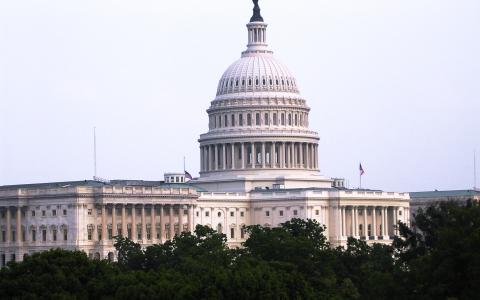
(Yahoo!Finance) - It’s an open joke in Washington, DC that the “Inflation Reduction Act” is badly misnamed. Several sound analyses have found that the so-called IRA, which Congress passed on Aug. 12 and President Biden will soon sign, will have essentially no effect on inflation.
What it will do is boost green-energy funding, provide health care and pharmaceutical subsidies for some Americans and beef up tax collection. Those may be worthy goals, but they’re not anti-inflationary.
There’s a method to the silliness, however. Just about everything in politics is about messaging, and Democrats who passed the IRA with zero Republican support are positioning themselves to take credit if inflation retreats in coming months. The annual inflation rate peaked for the year at 9.1% in June, and fell back to 8.5% in July. If those declines continue, Democrats at some point will be able to point to the IRA and say, “See, we did that!”
Democrats, of course, hope this happens by the time of the midterm elections on Nov. 8, which is when they seem likely to lose control of the House of Representatives — allowing Republicans to block Biden’s legislative agenda for the next two years. It’s a long shot. There will only be two more monthly inflation reports before the midterms, including the data for August and September. Economists think inflation will probably continue to inch down, but not plummet. So the rate of inflation might be around 8% or perhaps a little lower by Election Day. That would be moving in the right direction, but still lousy compared with the inflation rate when Biden took office, which was just 1.4%.
Still, you’re going to be hearing a lot about the IRA and falling inflation during the next few weeks. Biden and his fellow Democrats are planning a big messaging push to tout the virtues of the IRA and its supposed slaying of inflation. Biden will embark on a “Building a Better America Tour” hitting communities across the country and bragging about his recent legislative accomplishments. Cabinet members and Congressional Democrats running for reelection will form a chorus echoing the same talking points.
The White House says the IRA will lower costs for ordinary Americans in three areas: health care, prescription drugs and energy. The bill probably will do that, for some people. Health care subsidies will help more people afford to buy coverage under the Affordable Care Act. Medicare will be able to negotiate prices for 10 drugs that are generally expensive, and pass some of the savings through to patients. People buying an electric vehicle or a solar roof will get new tax breaks lowering the cost.
What the White House doesn’t account for, however, are second-order effects that offset the cost savings for a relatively small number of Americans. Pharmaceutical firms and health care providers, for instance, could raise costs for other drugs and services if they have to cut prices to participate in government programs. Green energy subsidies will boost demand for EVs and solar panels, which tends to push prices up. These are some of the reasons macroeconomic analyses of the bill, including all factors, find little or no overall effect on inflation: the bill will most likely cut costs in some areas while raising costs in others.
In politics, perception matters as much as reality, and Democrats undoubtedly are trying to create the impression they’re acting aggressively to tame inflation. Biden has released an unprecedented amount of oil from the strategic reserve to bring gasoline prices down and jawboned the domestic energy industry about producing more. He also visited Saudi Arabia and asked that country and other OPEC members to produce more, with a wee increase to show for his troubles.
Oil and gas prices are going Biden’s way, however. Oil prices have dropped by more than $30 per barrel since peaking in June. Gasoline prices have followed those down, declining by more than a dollar, to a national average of $3.95. The main factor driving prices down has been receding worry about Russia’s invasion of Ukraine and the negative effects on global oil markets, which haven’t turned out to be as bad as expected. But that won’t stop Biden from saying his policies are responsible.
If current trends continue, the discordant naming of the IRA and the Democrats’ credit-claiming strategy could end up being fairly shrewd. But there are risks in the other direction. It’s not at all certain that inflation is on its way down permanently, or that global oil markets are stabilizing for good. If inflation and gas prices reverse course and start rising again, then the “Inflation Reduction Act” will seem like a failure and Democrats will have some major explaining to do. Obviously they hope to get to November before anything like that happens.
By Rick Newman · Senior Columnist



